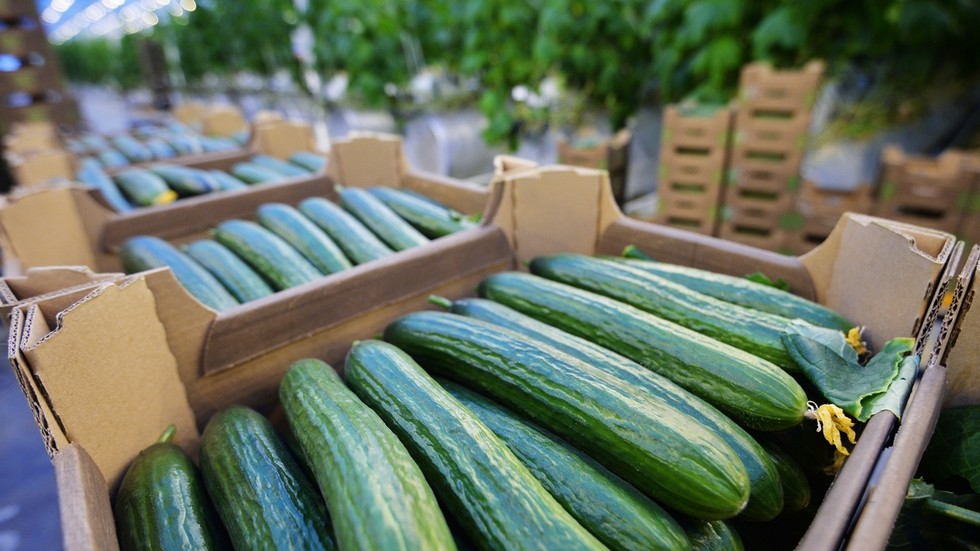Polish Farmers Rally for a Russian Cucumber Ban
In a decisive move, farmers in Poland are advocating for a ban on Russian cucumbers, citing serious concerns over market competition and agricultural integrity. This initiative not only reflects local farming communities’ struggles but also raises critical questions regarding international trade dynamics.
The Context Behind the Call to Action
The demand for a ban on Russian cucumbers arises from heightened competition that threatens the livelihoods of Polish farmers. With Russia’s agricultural exports on the rise, many Polish farmers argue that their ability to compete fairly in domestic markets is being undermined.
According to recent reports from the Polish Ministry of Agriculture, the influx of cheaper Russian cucumbers has led to a significant drop in prices for Polish-grown produce. This has resulted in a 20% decrease in income for local cucumber growers over the past year, pushing many to the brink of financial collapse.
Economic Implications of the Ban
The call for a ban on Russian cucumbers is not merely about protecting local farmers; it has broader economic implications. The Polish agricultural sector plays a vital role in the country’s economy, contributing approximately 1.5% of the GDP. A thriving agricultural sector ensures food security and sustains rural employment.
- Potential loss of income for farmers
- Impact on food prices in local markets
- Effects on employment in agricultural sectors
Experts warn that if the Polish government does not take action, the consequences could ripple through the entire economy, affecting not just farmers but also consumers and related industries.
International Trade Dynamics
The demand for a cucumber ban also sheds light on the complexities of international trade. Poland, as a member of the European Union, is bound by various trade agreements that complicate unilateral bans on imports. However, Polish farmers argue that national interests should take precedence in this case.
“We must prioritize the welfare of our farmers and local markets over international trade agreements that benefit foreign producers at our expense,” said Jan Kowalski, a representative of the Polish Farmers’ Union. This sentiment resonates with many who feel that the current regulations favor imported goods, jeopardizing local agricultural practices.
Historical Context of Agricultural Policies
Poland’s agricultural policies have evolved significantly since joining the EU in 2004. Initially, EU membership opened doors for Polish exports, but over the years, many farmers have expressed feeling overshadowed by larger agricultural economies, such as those in Germany and France.
The ongoing challenges posed by Russian imports echo historical tensions in European agriculture, where smaller nations often struggle to assert their interests against larger, more powerful economies. This situation raises questions about the efficacy of existing EU regulations in safeguarding the interests of smaller member states.
Future Outlook: What Lies Ahead?
As Polish farmers continue to advocate for a ban on Russian cucumbers, the future remains uncertain. The Polish government faces mounting pressure to respond effectively while balancing the intricacies of international trade agreements.
Analysts suggest that the outcome of this situation could set a precedent for how EU countries address similar issues in the future. If successful, it may inspire other nations to reevaluate their agricultural policies in the face of foreign competition.
Potential Solutions and Alternatives
In response to these challenges, Polish farmers are exploring various solutions beyond just a ban. Some propose:
- Enhanced funding for local agricultural initiatives
- Marketing campaigns to promote Polish cucumbers
- Negotiating better terms within EU frameworks to protect local products
By diversifying strategies, Polish farmers hope to not only survive but thrive in an increasingly competitive market.
A Call to Action
The situation of Polish farmers underscores the urgent need for action. As they rally for a ban on Russian cucumbers, it is crucial for policymakers to listen and consider the long-term implications for local agriculture and food security.
Support for local farmers is not just an agricultural issue; it is a matter of national pride and economic stability. Citizens are encouraged to engage in discussions, support local produce, and advocate for policies that protect domestic agriculture. The time for action is now.
See more Business Focus Insider Team

